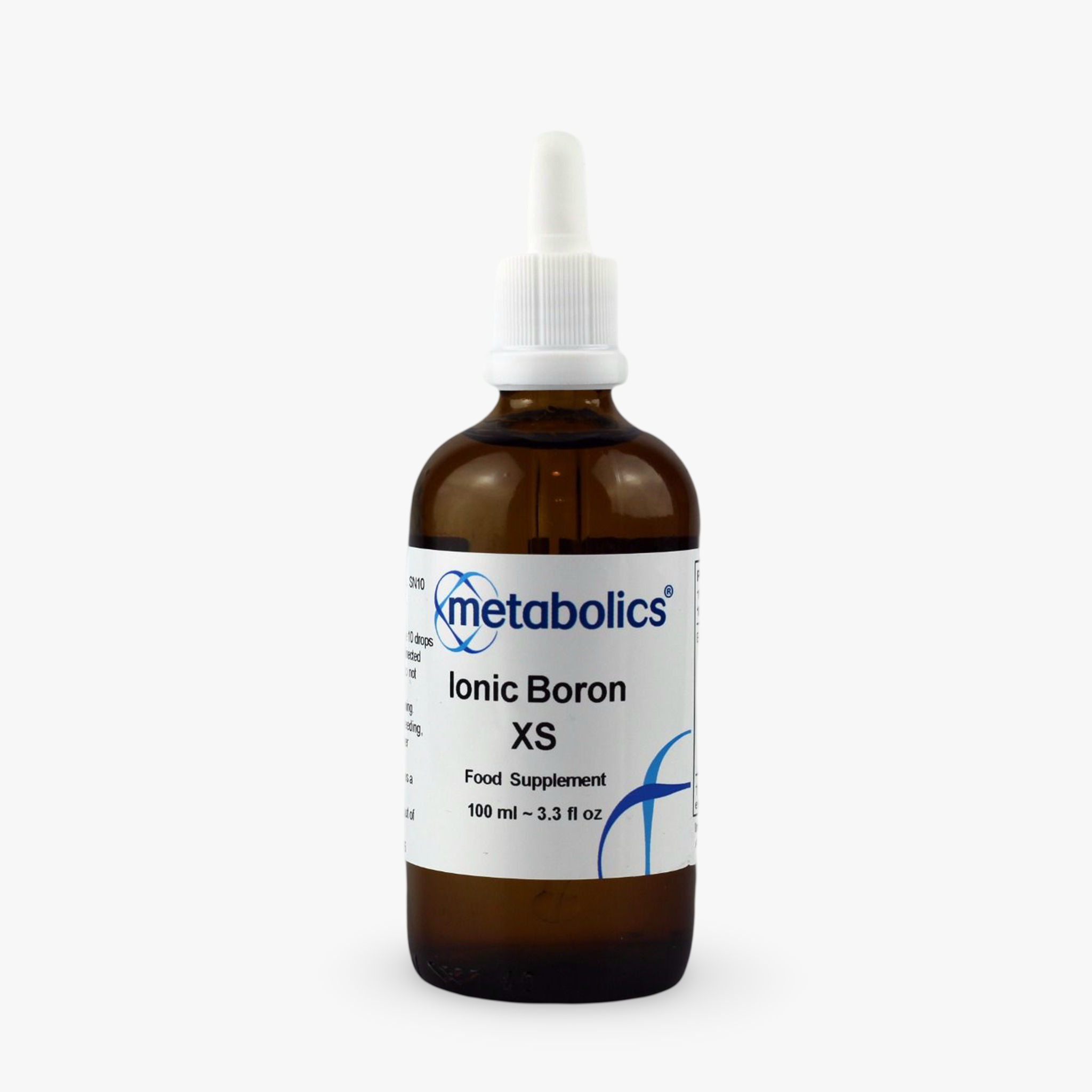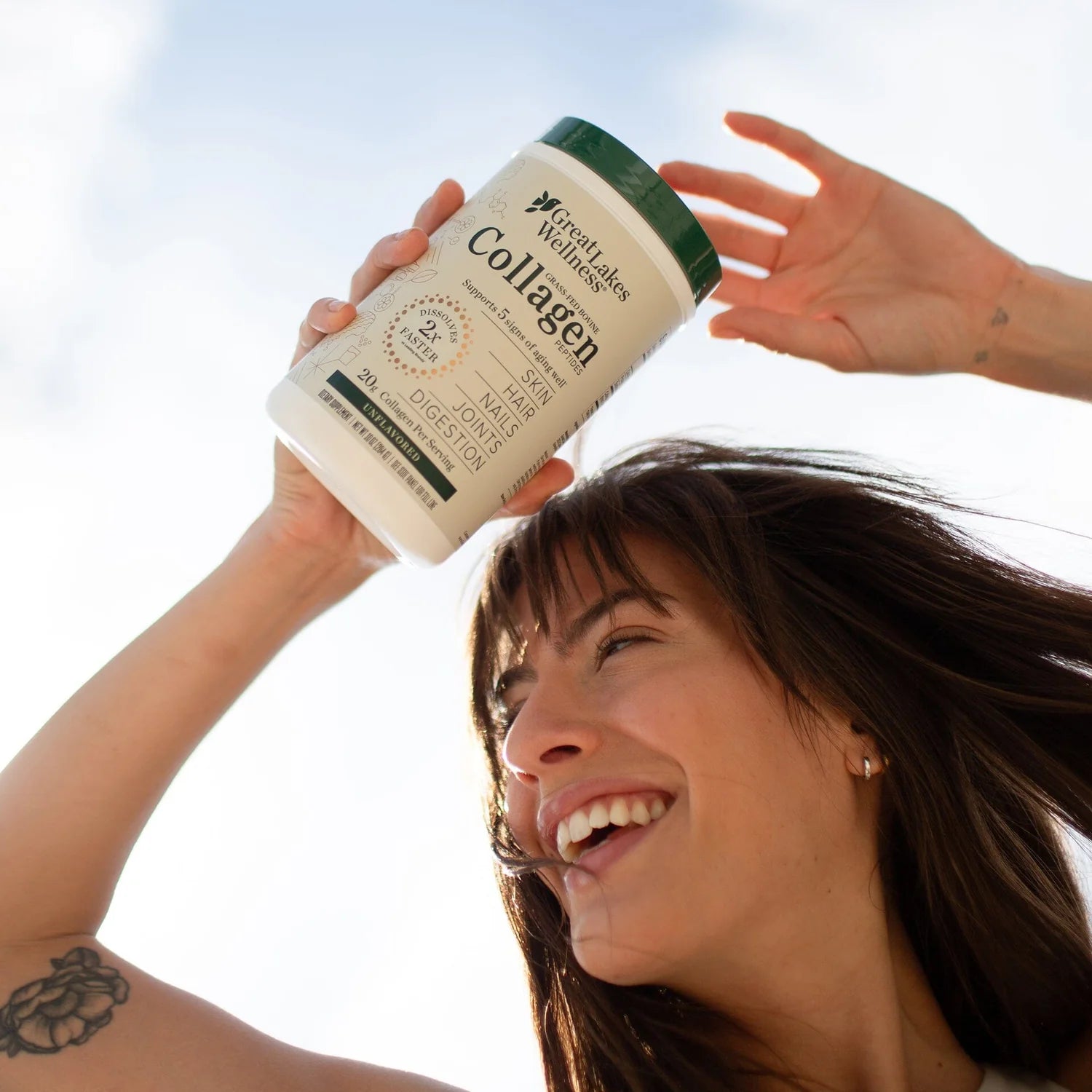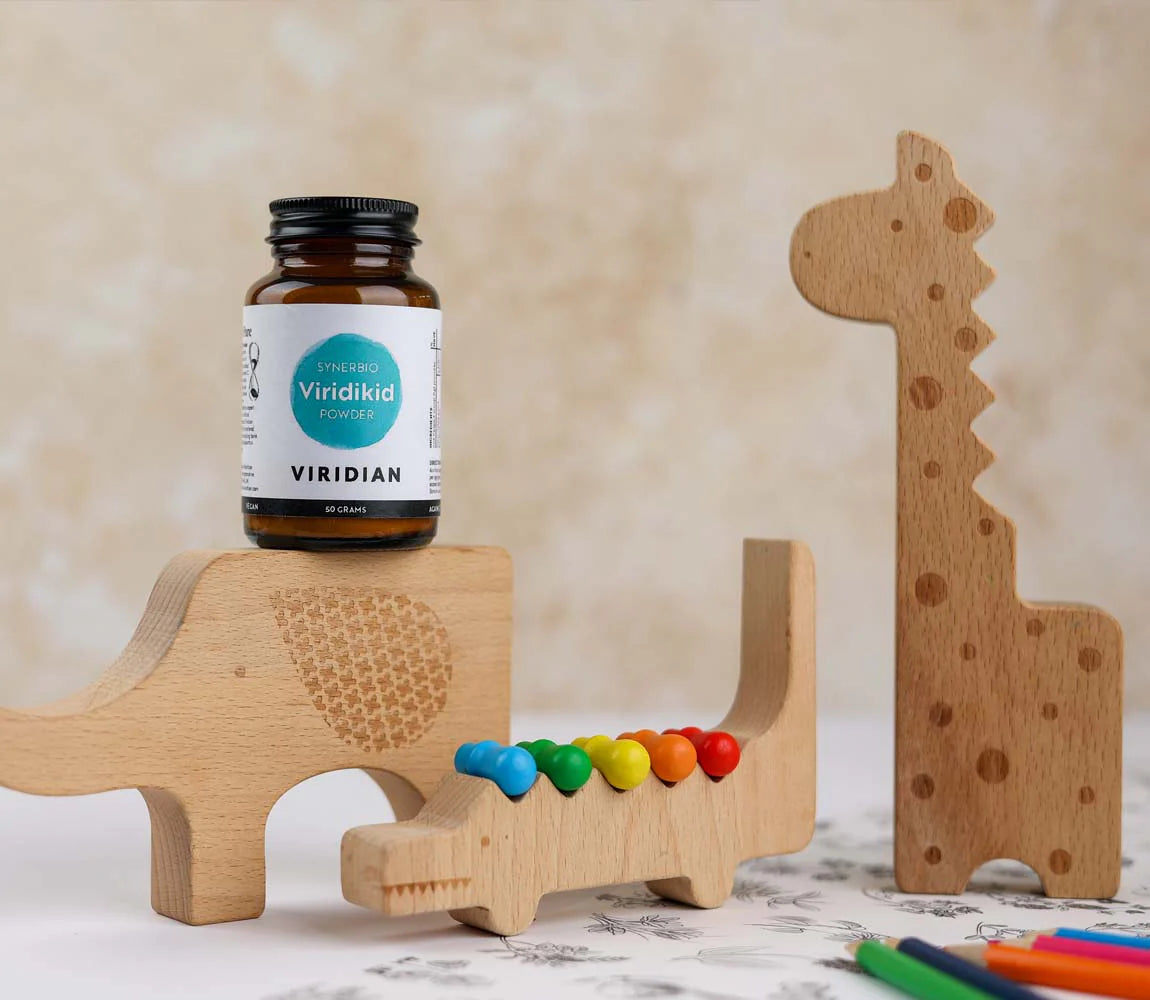
Metabolics Ionic Boron XS
Ionic Boron is an essential trace mineral that is involved in the conversion of vitamin D.
Couldn't load pickup availability
Pickup currently unavailable at Shop location
Pairs well with
Description
Boron is an essential trace mineral. Its source in food is dependent on the levels of Boron in the soil but can be found in fruits and vegetables where it is required for cell wall integrity.
Boron is involved in the conversion of vitamin D.
Boron also stabilises and extends the half life of Vitamin D and oestrogen. - Source www.ncbi.nlm.nih.gov
As oestrogen drops at menopause there is an increase in certain inflammatory chemicals (a cytokine called interleukin 6), which stimulates osteoclast production. Boron is required for oestrogen to convert to 17- beta oestrodiol, which is more potent than oestrogen, so prolonging the beneficial effects of oestrogen. One study, where postmenopausal women were supplemented with 3mg daily Boron, significantly decreased urinary excretory calcium and increased levels of 17-beta-estrodiol.
Boron is also involved in converting Vitamin D to bone building Calcitriol.
Boron also has an interactive role with Calcium and magnesium and Vitamin D.
Although there is no RDA for Boron, there are no toxicity reports and 1mg daily intake from food is generally recommended.
Best Before End: 08/2026
Suggested Use
Ingredients
If you have any questions, you are always welcome to contact us. We'll get back to you as soon as possible, within 24 hours on weekdays.
-
Shipping Information
Use this text to answer questions in as much detail as possible for your customers.
-
Customer Support
Use this text to answer questions in as much detail as possible for your customers.
-
FAQ’s
Use this text to answer questions in as much detail as possible for your customers.
-
Contact Us
Use this text to answer questions in as much detail as possible for your customers.
FAQs
Please read our FAQs page to find out more.
When will my order ship?
We aim to dispatch all orders placed before 3pm, on the same day.
How long will my order take to arrive?
Tracked 48 (£3.95): End-to-end tracking for peace of mind. Get your parcel delivered within two to three working days.
Tracked 24 (£5.50): Tracking to delivery point and next-day delivery.
Do you ship internationally?
Yes, we do! We use both Royal Mail & DHL for international shipments.
If your country does not show at checkout, please reach out to us and we can manually arrange a shipment.
What are your most popular products?
You can find our bestselling products here.


